Donald Trump and Joe Biden will clash in Nashville, Tennessee, on Thursday evening in the final debate of the U.S. presidential election race, with the president trailing his Democratic challenger by 8.7 points nationally and in most battlegrounds according to CGTN analysis of public polls.
Interactive page: X Factors in the U.S. Election
Three weeks after a chaotic first debate remembered for interruptions and personal attacks, the candidates for the presidency return to the stage at Belmont University with over 44 million Americans having already voted and just 12 days to go until election day in the last mass viewership event of the campaign.
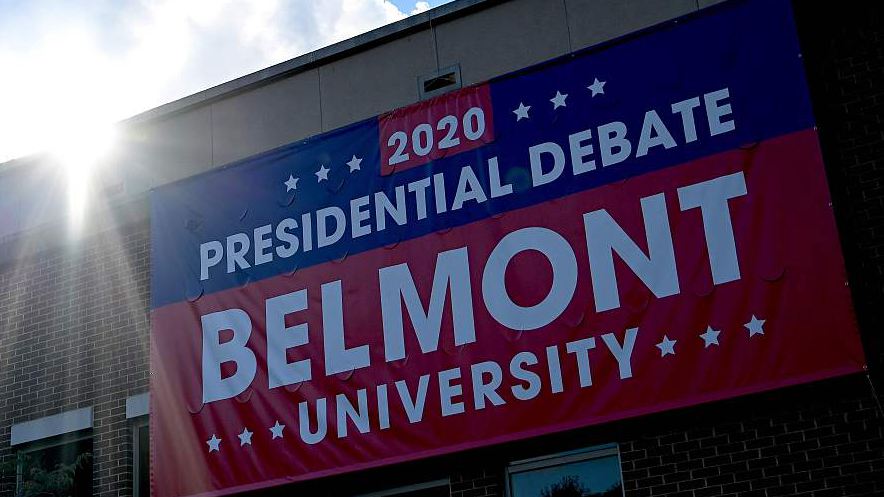
Belmont University is preparing for the third presidential debate, Nashville, Tennessee, October 21, 2020. /VCG
Belmont University is preparing for the third presidential debate, Nashville, Tennessee, October 21, 2020. /VCG
Here are five factors to watch:
1. Trump's tactical change?
Trump's ratings slumped in the wake of the first debate – a period in which he also tested positive for COVID-19 and was hospitalized – and his advisers have reportedly urged him to strike a less aggressive, more likable tone in Nashville and focus on his economic message.
The president is trailing Biden by significant margins with suburban women and older voters, polls suggest, and his performance three weeks ago didn't help. Out-polled and out-fundraised by the Democrat, he desperately needs to change the trajectory of the race fast with time running out.
However, the New York Times reported the 74-year-old had engaged only in "loose and unconventional preparation" and the evidence from his recent rallies – at which he's attacked his own FBI director, Republican senators and scientific experts as well as the media and his usual Democratic targets – suggests he isn't inclined to tone down the rhetoric.
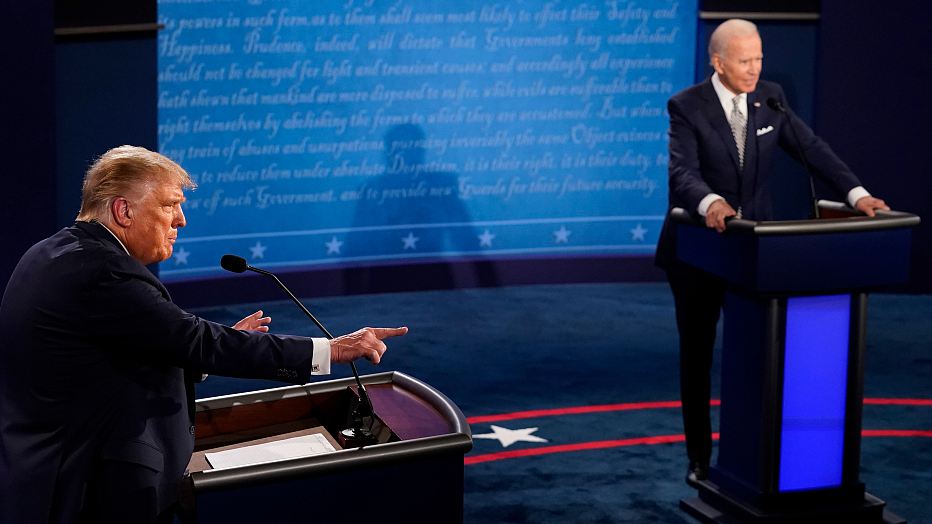
Donald Trump and Joe Biden participate in the first presidential debate, Cleveland, Ohio, September 29, 2020. /VCG
Donald Trump and Joe Biden participate in the first presidential debate, Cleveland, Ohio, September 29, 2020. /VCG
The president and his surrogates have promoted an unsubstantiated story – rejected by the news division of Fox News – published by the New York Post about the business dealings of Biden's son, Hunter, and has indicated he will attempt to bait the former vice president with it.
There has been widespread skepticism about the story and social media giants Twitter and Facebook initially placed restrictions on its spread, but Trump has nevertheless sought to paint the Bidens as an "organized crime family."
As with his other attacks on his rival in 2020, there is little evidence the wider media is willing to play ball as it did with Hillary Clinton in 2016 – or that the claim has resonance with voters.
2. Biden's do-no-harm plan
The Biden campaign urged Democrats not to be complacent in a memo to supporters at the weekend, arguing that while the polling was positive for the 77-year-old, the race was neck and neck in the battleground states.
Biden's approach is likely to be simple: push back a little when the president attacks, don't get baited into an error and repeatedly hit Trump on his handling of the COVID-19 pandemic.
The Democrat has been preparing for the debate all week and is in a strong position. He doesn't need to take any risks, but will have to be ready for attacks on his son and is also likely to again be challenged on court packing – expanding the size of the Supreme Court – a prospect he has so far refused to rule out.
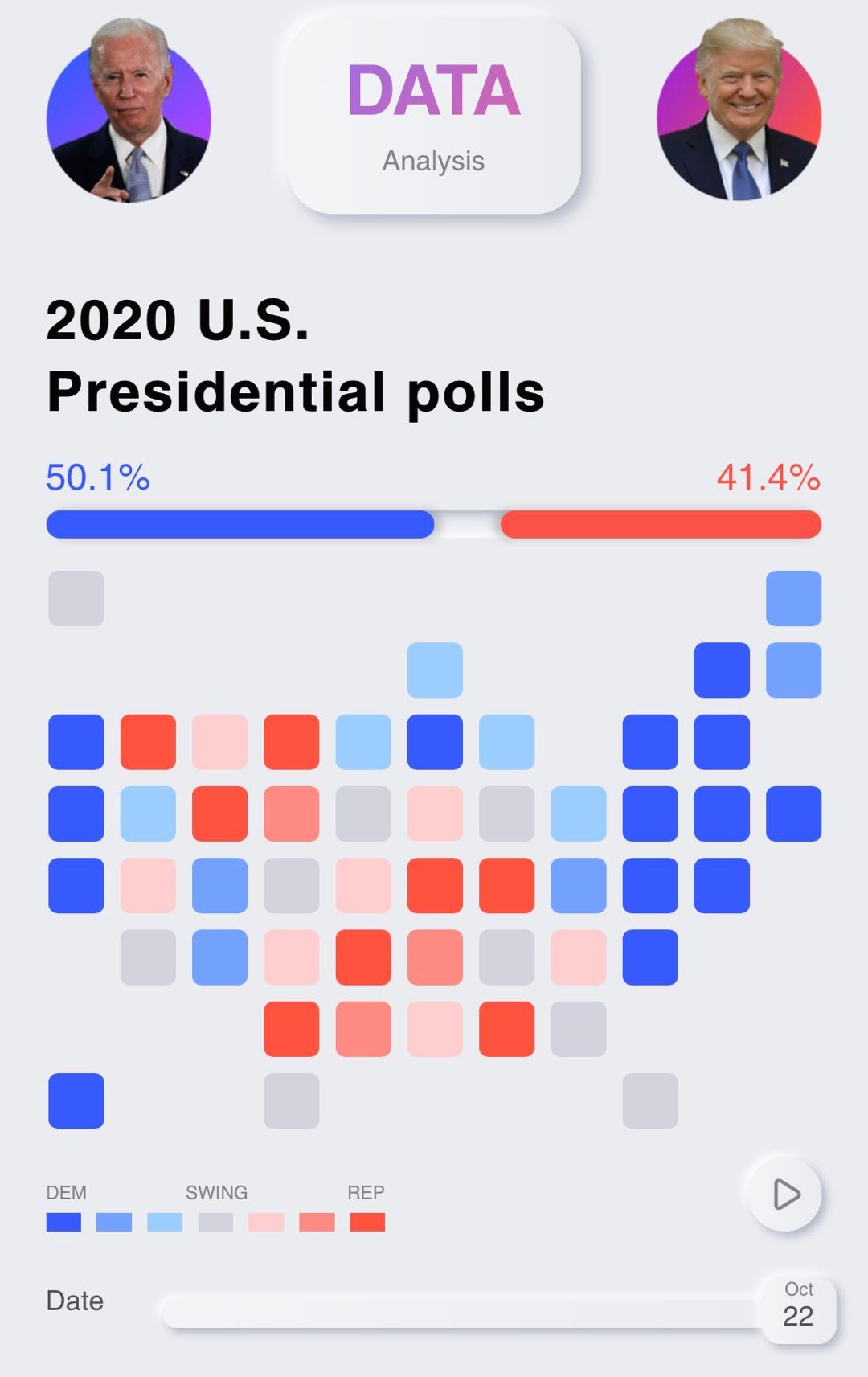
CGTN's X Factors in the U.S. Election
CGTN's X Factors in the U.S. Election
The former vice president has resisted making counterattacks about Trump's family, but has been given potential ammunition to hit the Republican with following a New York Times investigation into the president's taxes and debts.
However, just as his running mate Kamala Harris did in the vice-presidential debate, Biden is likely to try to focus on Trump's leadership through the pandemic and healthcare as much as possible.
3. The mute factor
The first debate featured constant interruptions and backbiting, leading the Commission on Presidential Debates (CPD) to change the rules for Thursday's event: when one candidate gives his two-minute opening statement to each of the six 15-minute discussions, the other will have his microphone turned off.
The Trump campaign called the changes "completely unacceptable," continuing its tense relationship with the commission – Trump pulled out of the second debate after the CPD determined it should be held virtually in the wake of the president's COVID-19 diagnosis.
02:00
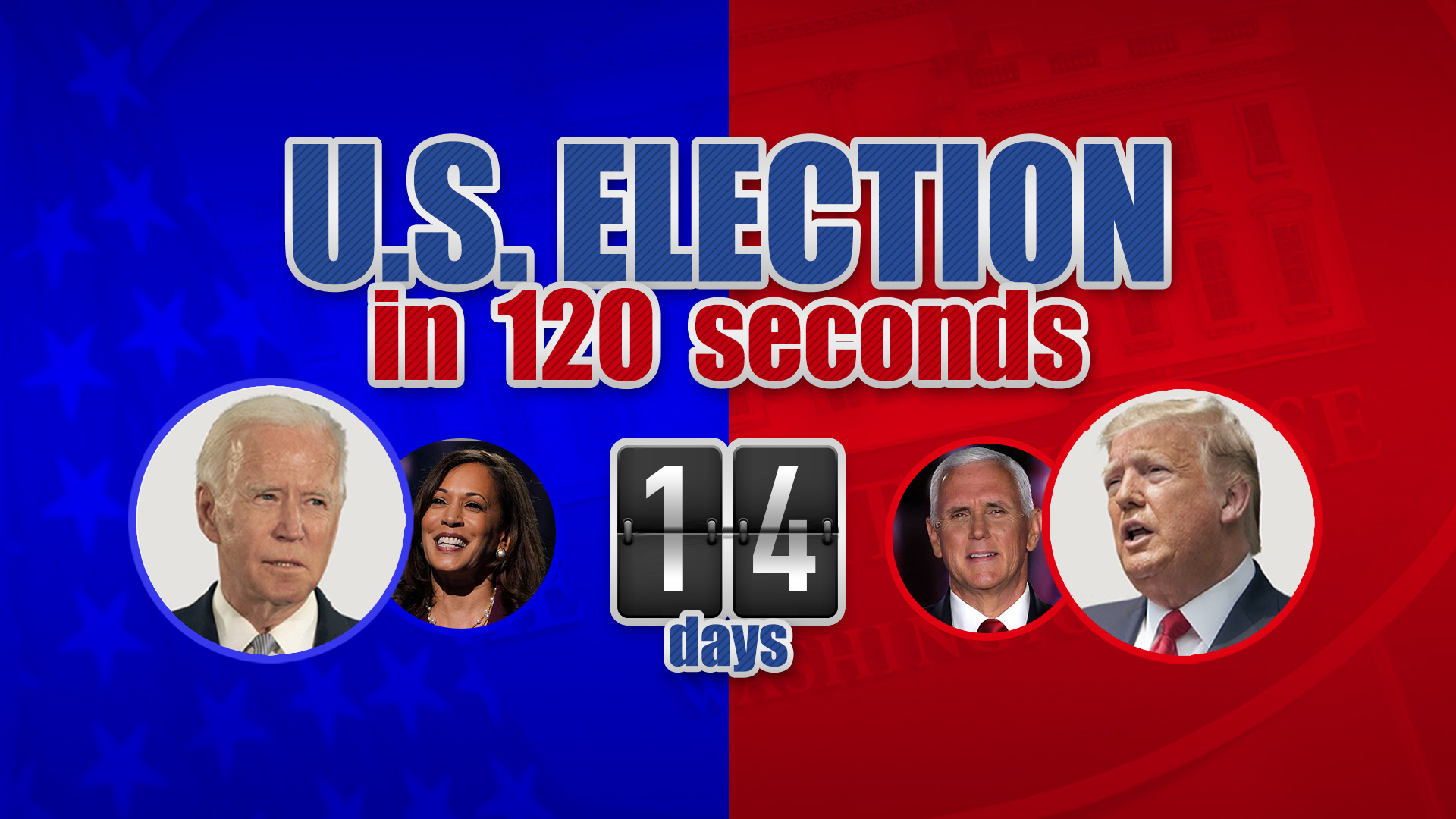
Despite the criticism, some Trump aides believe the mute factor could benefit the president, whose interruptions can turn off voters. The president himself said in a Fox News interview this week that he had been advised to just let Biden talk: "They said if you let him talk, he'll lose his chain of thought."
How the rule change will play out in practice – and whether not having a microphone on will fully prevent attempts to interrupt – remains to be seen, and for the remaining minutes of each segment the men will both have their microphones on.
4. Fauci, stimulus and COVID-19
The COVID-19 pandemic is the main issue in the election: polls suggest Trump's handling of the crisis is disapproved of by a clear majority of voters.
In recent days, Trump has claimed the United States, where more than 220,000 people have died from COVID-19 and over 50,000 people per day are testing positive, has turned a corner on the pandemic while attacking top U.S. infectious diseases expert Anthony Fauci and holding packed rallies featuring largely mask-less crowds.

Belmont University is preparing for the third presidential debate, Nashville, Tennessee, October 21, 2020. /VCG
Belmont University is preparing for the third presidential debate, Nashville, Tennessee, October 21, 2020. /VCG
Biden has held no large scale rallies, only made low-key appearances on the campaign trail and defended Fauci from the president's claim the well-liked adviser has been "a disaster."
The campaigns have drawn a stark contrast on the most important issue of the day and it's likely to dominate the debate, though blame for the failure to so far strike a deal on a new stimulus package of financial relief could also feature.
5. Moderator under fire
The Trump campaign has taken several steps to put the focus on rules and procedures rather than the issues. The debate moderator, Kristen Welker, the NBC News anchor and White House reporter, a choice agreed to by both campaigns, has been lambasted by Trump as "terrible and unfair" and "totally partisan."
Her choices of topic – fighting COVID-19, American families, race in America, climate change, national security and leadership – have also come under fire.
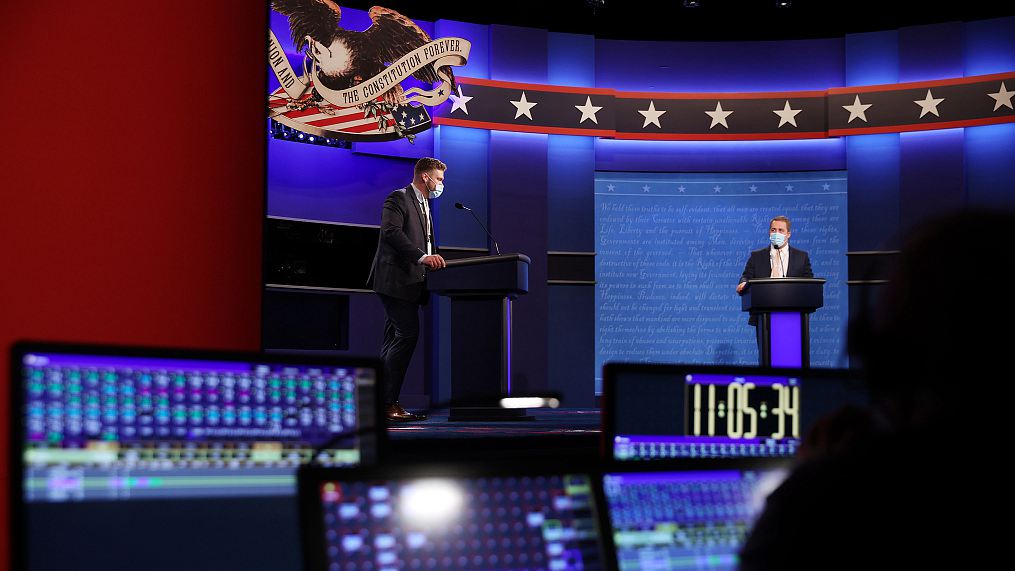
Belmont University is preparing for the third presidential debate, Nashville, Tennessee, October 21, 2020. /VCG
Belmont University is preparing for the third presidential debate, Nashville, Tennessee, October 21, 2020. /VCG
The Trump campaign's complaints center on a lack of foreign policy discussion – it has said the debate was supposed to be focused on foreign affairs, a claim denied by the CPD.
However, the row does suggest that the president is keen to tout his foreign policy credentials on Thursday evening – an issue which rarely moves the dial in U.S. elections and has had little airtime so far in the campaign.
00:58
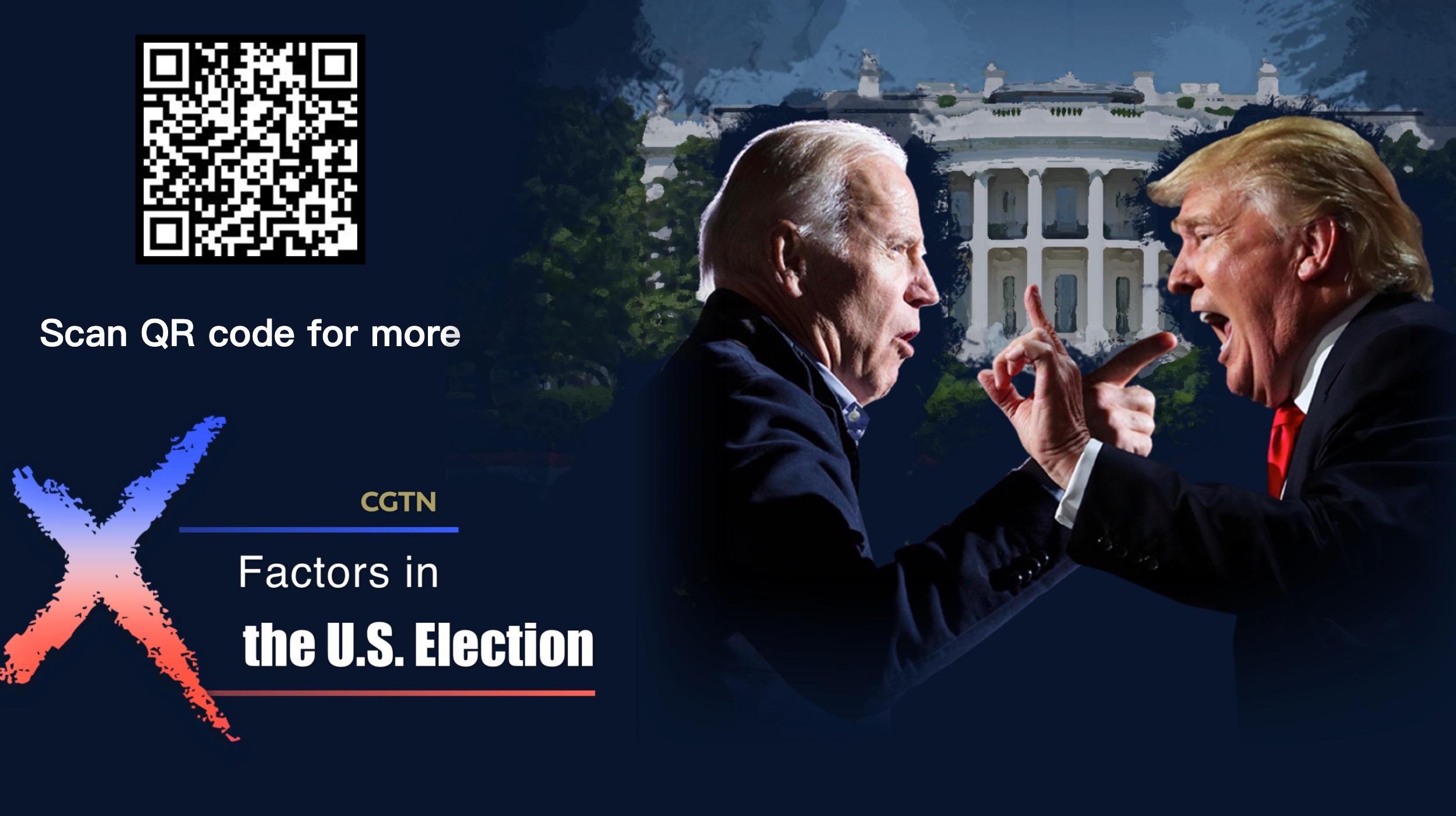
Scan the QR code in the video above to check out CGTN's U.S. election interactive special for exclusive data as well as the latest news, explainers, cartoons and analysis.